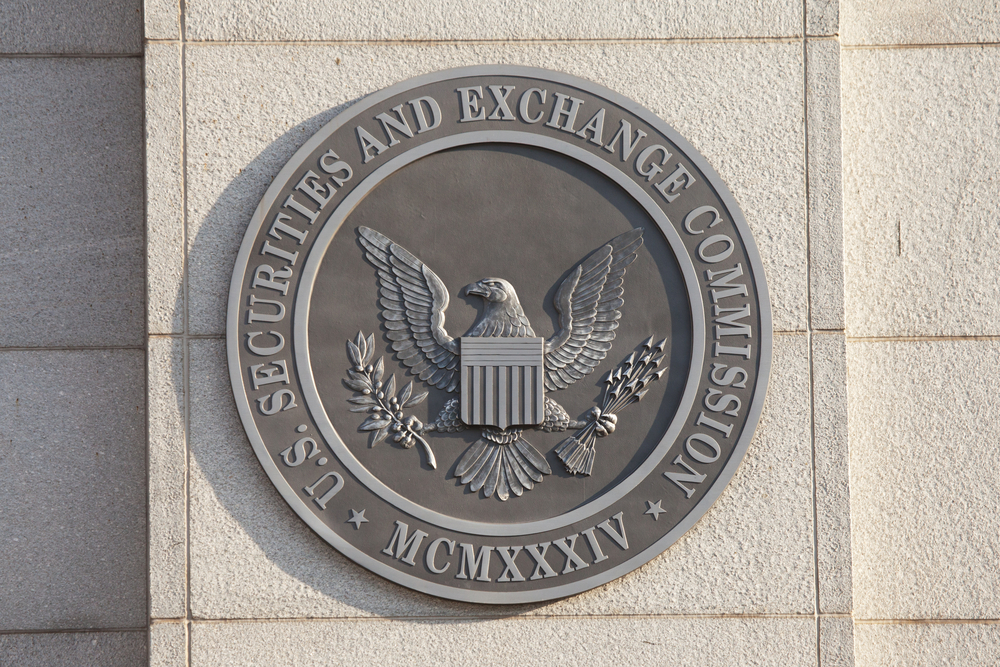Labeled as an effort to “enhance and modernize” the Investment Company Act “Names Rule” (35d-1), the Securities and Exchange Commission (SEC) on Sept. 20 voted to amend the rule to prevent what it suggests are the use of deceptive names that are likely to mislead investors.
 Noting that it has been approximately 20 years since the rule was first adopted, the amendments seek to enhance the rule’s protections by requiring more funds to adopt an 80% investment policy, including funds that suggest a focus in investments with particular characteristics—for example, terms such as “growth” or “value,” or those that reference a thematic investment focus, such as the incorporation of environmental, social or governance (ESG) factors.
Noting that it has been approximately 20 years since the rule was first adopted, the amendments seek to enhance the rule’s protections by requiring more funds to adopt an 80% investment policy, including funds that suggest a focus in investments with particular characteristics—for example, terms such as “growth” or “value,” or those that reference a thematic investment focus, such as the incorporation of environmental, social or governance (ESG) factors.
While she did outline a few concerns with the proposal, including its potential cost, Republican Commissioner Hester Peirce joined the SEC’s three Democratic Commissioners in supporting the new rule; Mark Uyeda, who is the agency’s other Republican Commissioner, voted against it.
“As the fund industry has developed over the last two decades, gaps in the current Names Rule may undermine investor protection,” SEC Chair Gary Gensler said in a statement. “Today’s final rules will help ensure that a fund’s portfolio aligns with a fund’s name. Such truth in advertising promotes fund integrity on behalf of fund investors.”
In citing a need for the updated rules, the SEC notes that a fund’s name is typically the first piece of information that investors receive about a fund, and fund names offer “important signaling” for investors in assessing their investment options. However, because of developments in the industry since the adoption of the rule in 2001—including the increase in fund assets and the proliferation of diverse fund strategies, such as those with ESG-related objectives—the SEC says it is “modernizing and enhancing” the names-related regulatory requirements to “further its investor protections goals.”
Goes Too Far
As the lone vote in opposition, however, Commissioner Mark Uyeda took issue with what he believes will be excessive compliance costs. “With the expansion of the fund names rule to approximately 76% of funds—an estimate I think it likely on the conversative side—funds likely will face significant initial and ongoing costs complying with the amendments, including those relating to prospectus disclosure, notifying shareholders, and complying with newly amended Form N-PORT and recordkeeping requirements,” he stated.
Uyeda also expressed concern about the potential costs for smaller funds, explaining that while the tiered compliance period for smaller funds is a “good development,” that he has “concerns about the ambitious regulatory agenda for funds, which entails numerous compliance dates.”
The Investment Company Institute (ICI) also took issue with the newly finalized amendment, suggesting that it goes beyond the concerns previously expressed about ESG naming. “This enormous expansion of the fund names rule has nothing to do with ESG. The rule sweeps more than three-quarters of all the funds in the U.S. into its dragnet, going far beyond ESG funds—the supposed root of the rulemaking—with no justification,” stated ICI President and CEO Eric Pan. “The agency has also failed to take a reasoned and calibrated approach to improving fund disclosure, as they should have before making sweeping changes to rules surrounding fund names,” Pan added.
New Requirements
Under the existing policy, the Names Rule requires registered investment companies whose names suggest a focus in a particular type of investment to adopt a policy to invest at least 80% of the value of their assets in those investments.
In addition to requiring more funds to adopt the 80% investment policy, the amendment also includes a new requirement that a fund review its portfolio assets’ treatment under its 80% investment policy at least quarterly and will require specific time frames—generally 90 days, instead of 30 days as first proposed—for getting back into compliance if a fund departs from its 80% investment policy.
What’s more, the amendment includes enhanced prospectus disclosure requirements for terminology used in fund names, including a requirement that any terms used in the fund’s name that suggest an investment focus must be consistent with those terms’ plain English meaning or established industry use. The amendment also includes additional reporting (Form N-PORT) and recordkeeping requirements for funds regarding compliance with the names-related regulatory requirements.
The changes will become effective 60 days after publication in the Federal Register. In addition, fund groups with net assets of $1 billion or more will have 24 months to comply with the amendments, and fund groups with net assets of less than $1 billion will have 30 months to comply.
As an aside, Gensler did note that comments on one aspect of the May 2022 proposal are still being considered. With respect to ESG, the original proposal sought to effectively prohibit the use of ESG-related terms in funds’ names if those funds consider ESG factors along with—but not more significantly than—other factors. The Chairman said he “looks forward to staff recommendations regarding this remaining aspect of the proposal.”
An SEC fact sheet about the new rule is available here.
The text of the 283-page final rule is available here.

